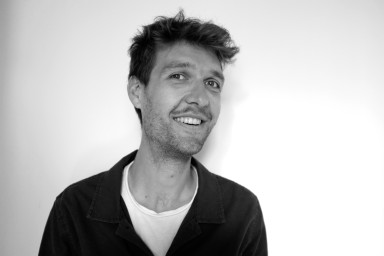03 Jul, 2023, 11:00Lauenburg
Dr. Louis Volont (HCU Hamburg)
Maker of space, master of time: A tempology of the future-maker

Image © Louis-Henri Volont.
Abstract
Future-makers are often understood as spatial actors: they work with this or that material, they tweak this or that infrastructure, they work towards this or that situation (situ = place). However, such spatial understanding overlooks the future-maker’s engagement with time and temporality – a lacuna this presentation seeks to fill. After all, the future constitutes not only a coming ‘situation’, but also a temporal category. Building on the work of Barbara Adam and Reinhart Koselleck but also on the North American cultural sociology of ‘future projections’ (Mische, Tavoryn, and Eliasoph), this presentation offers a tempology of the future-maker. A core notion throughout the presentation is that of ‘projecting’: the act of imagining, in the present moment, an action as having been done in the future. Projecting comes with two forms of inequality: the inequality of ‘temporal distance’ and the inequality of ‘temporal voice’. The inequality of temporal distance refers to the fact that some actors gain a strategic advantage through the ability to project into the distant future, while others remain stuck in an ‘eternal present’ (Nowotny). The inequality of temporal voice points to the rise of the societal role of the future-maker per se: the ability to dramaturgically perform the role of future-maker allows certain actors to define pathways into the future, pathways that are undergone by and imposed upon non-future-making actors. The talk’s conclusion is that contemporary future-makers (technologists, motivational speakers, policy representatives) have a similar societal function as priests do in the religious realm: They deploy the impending danger/salvation of imagined futures to limit/enable human agency in the present moment.
About the lecturer
Louis Volont is a postdoc in cultural sociology. His work generally focuses on the architectural, aesthetic, and artistic dynamics unfolding within Western metropolises – Rotterdam, London, Hamburg – between the post-war years of modernist redevelopment and the current condition of postmodern malaise. Three theoretical foci pervade his work: commons, time, and ritual. In the realm of the commons, he has contributed to the emergence of the concept of ‘cultural commoning’, focusing specifically on the role played by activistic architects in the creation of commons-based forms of urban life. His PhD, entitled ‘Shapeshifting: The Cultural Production of Common Space’ (2021), and the edited volume (with Pascal Gielen and Thijs Lijster) The Rise of the Common City (2022) are dedicated to Louis’s interest in the culture of urban commoning. On the level of time and ritual, his current postdoc project merges the sociology of time with Jeffrey Alexander’s theory of social performance. Using exhibitions and conferences in the field of urban future-making as explanatory cases, Louis explores how urban eco-imaginaries are ritualistically performed. Before arriving at HCU he was a visiting Fulbright scholar at MIT’s Art, Culture, and Technology programme, where he participated in the ‘Choreographing the City’ project. The latter endeavour asked how insights from choreography might inform more sustainable forms of urban design. Louis earned his PhD at the University of Antwerp, and his work has been featured in journals such as City & Community, Space and Culture, Social Inclusion, and Antipode. He has thought cultural theory at the University of Groningen and methods of urban research at HafenCity University Hamburg.